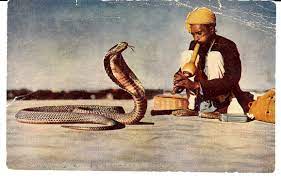Dunning-Kruger Effect – And the False Sense of Knowledge

The Dunning-Kruger effect is seen when an individual overestimates their competency due to their own lack of knowledge and experience in a certain field.
I was with friends who frequently hung out at a coffee shop. Due to my long tenure in the coffee trade, I possess passable (not stellar, but fair) understanding knowledge of coffee. While my friend loves his cappuccino, until now, he had not acquired enough expertise to label himself as a coffee expert. However, he talked to me like he knew a lot about coffee. And then he gave me a lecture about coffee, laden with inaccuracies. He has learned less and has less of a foundation to build an understanding of his ignorance. As a result, he tended to exaggerate his abilities because he had no basis for comparison. He thinks he’s doing well when, in reality, he’s below the norm because he has no idea how far others have come.
Individuals are prone to the Dunning-Kruger effect, a cognitive bias in which they incorrectly assess their intelligence and abilities. People with low abilities lack the self-awareness to know how inadequate they are. People with low intelligence and low levels of self-awareness tend to exaggerate their abilities.
It was named after the social psychologists who first described it, David Dunning and Justin Kruger. The original study on this psychological phenomenon consisted of four separate investigations.
The Study
For instance, in one study by Dunning and Kruger, 65 people were asked to rate the humour of various jokes. Even though they considered themselves good judges of humour, some participants were shockingly bad at guessing what others would find amusing.
Influence on Actions and Opinions
Individuals’ beliefs, choices, and behaviours are all susceptible to the influence of this phenomenon.
Dunning and Ehrlinger found that female and male students had similar test scores on a science quiz. However, women were less confident in their abilities because they thought they were inferior to men in their ability to use scientific reasoning. Females who held this belief were also less likely to participate in a science competition.
Personal Impact
You may be unaware of your strengths due to the Dunning-Kruger effect, which occurs when people falsely believe that other people find the same level of difficulty in tasks that come relatively easily to them. Consequently, you lose the ability to recognise your unique skills and abilities.
In addition, it’s easy to mistakenly conclude that your true talents lie in the areas where you’ve demonstrated the most success. You may be a below-average performer who’s starting to catch up to the norm.
You can see how this disparity could lead to poor decision-making when deciding which opportunities or careers to pursue. You may have asked your friends, “What do I do well?” The decision you’ve made is not the wrong one. The Dunning-Kruger effect teaches us when to believe in our own abilities and when to seek the counsel of those who may see us more objectively.
The effect can be discouraging if it leads you to expect praise from others for qualities you already see in yourself. Perhaps you hope a win a competition, and it goes to someone surprised even to be considered. It’s possible that her expertise led her to believe she was performing at a merely average level, while your average performance led you to believe you were doing exceptionally well.
Being arrogant about your abilities can prevent you from taking advantage of the expertise of those around you. Another negative consequence of underestimating your abilities is missing out on chances to share what you’ve learned with others.

Systemic Effects
As a result, society misses out on lessons from the most accomplished individuals since they choose to share their knowledge with an exclusive few. Those with average skills or below are often thrust into the spotlight.
Those in the lowest bracket of any talent, even the most uneducated, tend to be confident in their abilities. It’s a sad fact of our democracy that the people who know the least about it seem to have the greatest faith in it. They are the most resistive to education because they are convinced they already possess all the knowledge to keep (read: misinformation).
The Dunning-Kruger effect exploits the exact opposite of a deficiency in knowledge, namely an excess of false information. We are acutely aware of our ignorance, yet erroneous information might trick us into thinking we are experts in a particular field, leading us to hit “share carelessly.”
We have already witnessed the potentially catastrophic effects of this phenomenon on a national and international scale. If you’re a politician, you could do better with an ignorant crowd. Those with less information are more inclined to accept your claims, feel themselves well-informed, vote for you, and spread your message. Those in the higher to intermediate range of political knowledge are the most likely to withdraw from political discourse and abstain from voting out of a sense that they have nothing to offer. Experts are the most well-informed people; however, they often shy away from sharing their knowledge with the general public because they fail to appreciate the uniqueness of their expertise.
Ignorance and misinformation flourish in our culture because of a lack of self-awareness, while specialists and well-informed individuals hide behind closed doors. As a result, we lose genuine chances to learn from one another and disseminate false information and inaccurate viewpoints across our social networks.
When a large proportion of the population is misinformed and thus believes that they are superior to everyone else, the result is a society where an increasing number of people must compete over a decreasing amount of space.
Reasons Behind It
Is there any explanation for this seemingly inexplicable psychological impact? Is it possible that some individuals are just too dense to understand? According to Dunning and Kruger, this is due to a “dual load.” People are not only unable to do their jobs properly, but they also lack the cognitive capacity to recognise their inadequacy. People that lack competence often:
- Think too highly of their abilities
- Lack the ability to appreciate the actual competence and talent of others
- Lacking self-awareness and competence
In what ways can we protect ourselves against this?
The Dunning-Kruger effect may be mitigated simply by being aware of it. Keep in mind that the realisation that you lack expertise in a specific area places you in the centre of the pack. Of course, remember that with each new tier comes its own set of demons.
Also, even if you believe you have mastered a specific area, you still have plenty to discover.
Last but not least, avoiding the Dunning-Kruger effect requires you to be receptive to criticism. People with poor performance tend to be defensive when given constructive feedback and show little motivation to improve. Avoid dismissing feedback and constructive criticism; instead, attribute the criticism to your lack of understanding and use it to improve.
Reference
https://www.verywellmind.com/an-overview-of-the-dunning-kruger-effect-4160740



